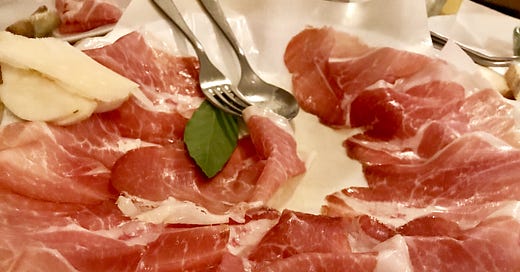Til Now

Bologna on a plate....
I landed at Marconi airport a couple of weeks ago - which is, incidentally, a very good place to go through passport control. Nancy and Michael were there to meet me, and we drove right off to Osteria Bottega. "Jonathan says its his favorite restaurant in Bologna," they explained.
It was a hot night, and inside the restaurant it seemed like a thousand degrees. Or did it seem so hot because they'd said, the minute we sat down, "We have to tell you something"? While I was flying Jonathan had been admitted to the hospital, and things did not look good.
We ate then, with a kind of desperation. This time last year we were all together - Laurie, Jonathan, Izzy, Leon, Margy, Robert, Nancy - eighteen of us. We had been so carefree. Death had seemed so far away. And now we ate, thinking how much Jonathan would enjoy this meal.

Raw pork meatballs.
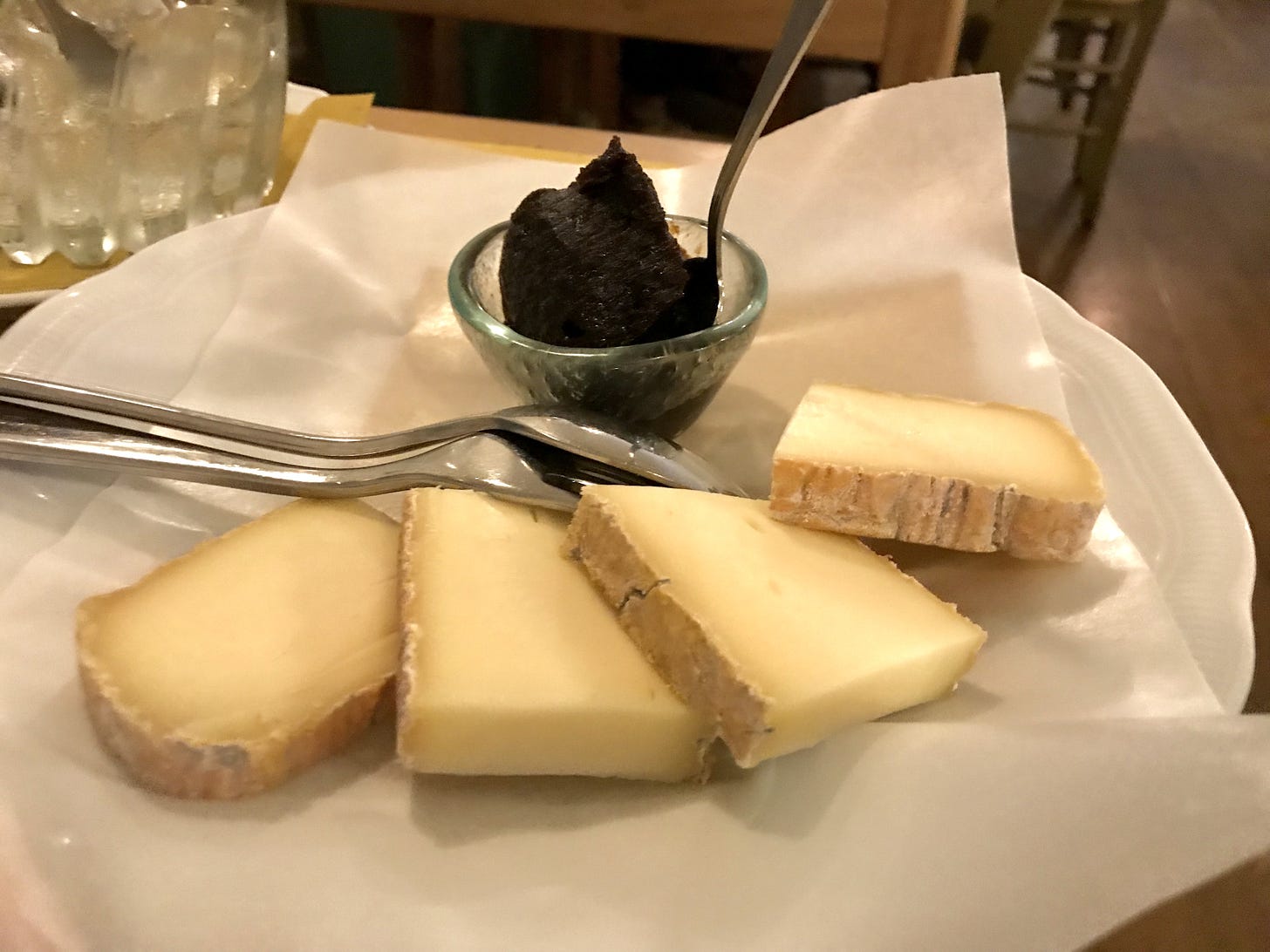
Taleggio - the best I've ever had - with a thick fig jam.
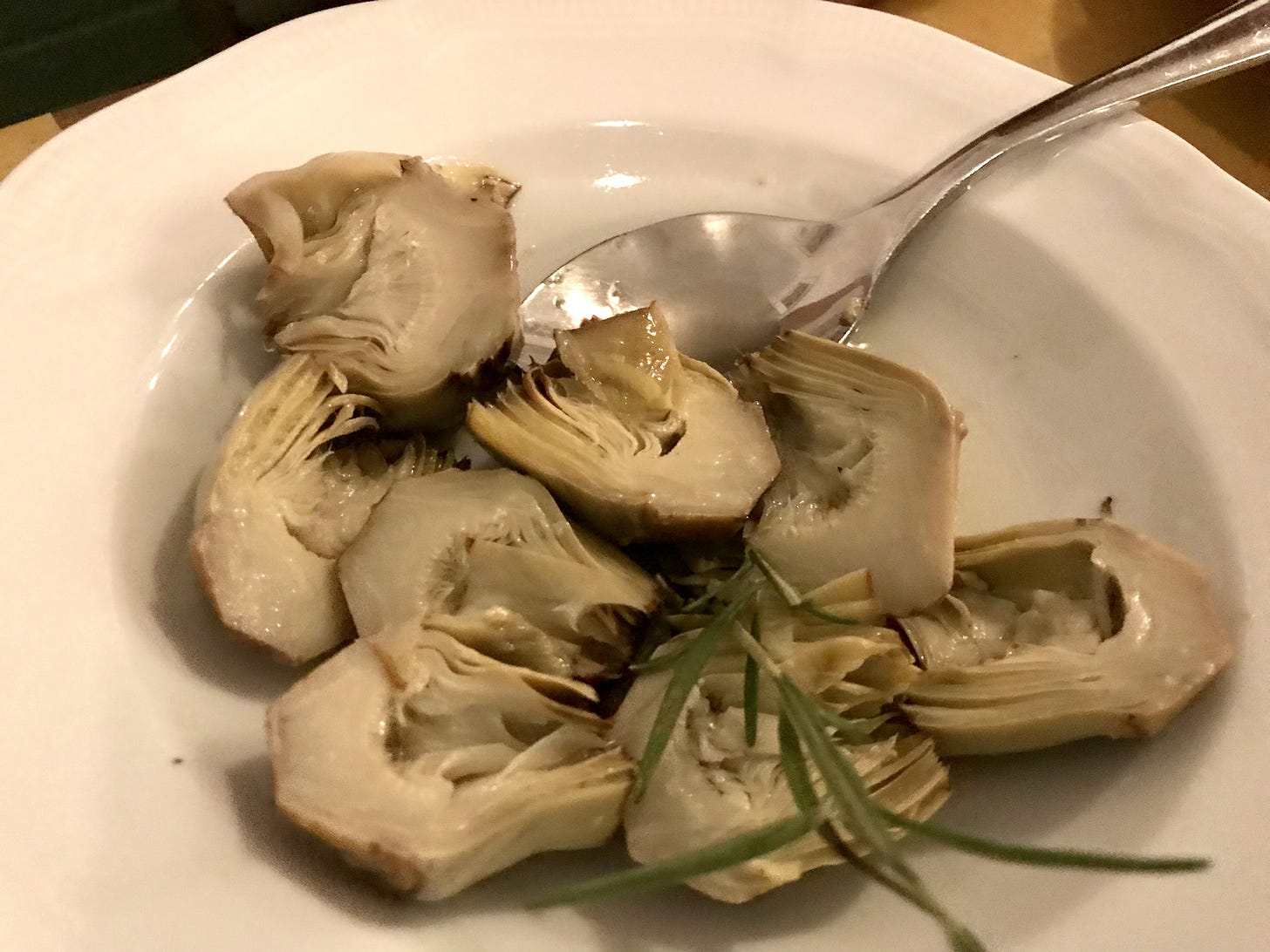
Truly extraordinary artichokes in oil.
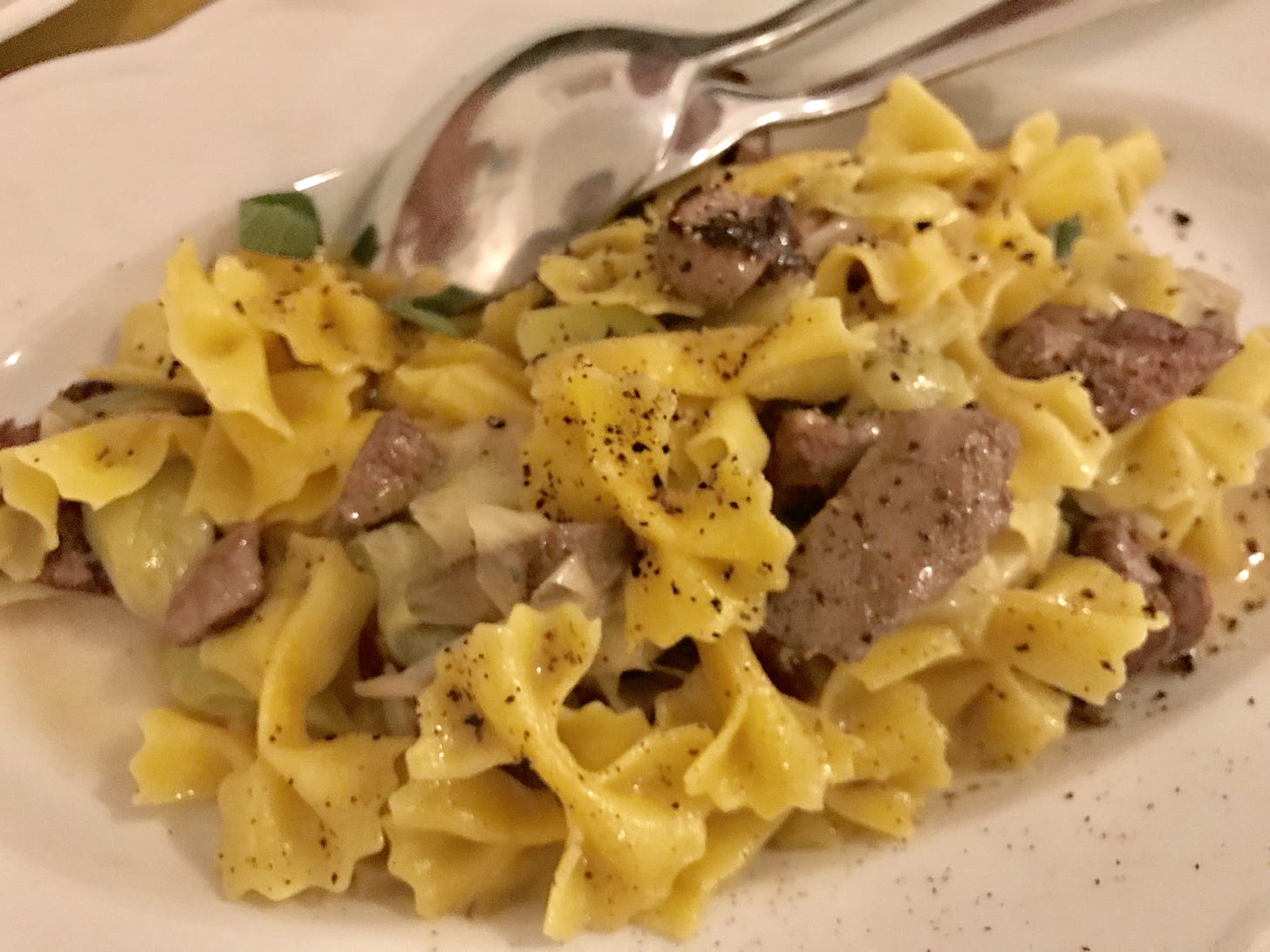
Pasta with hare.

And fat, floppy tortelloni, a perfect balance of slightly tangy ricotta, sage and butter.
It was wonderful food, extraordinary food, but like everything I ate that week, it tasted mostly of the past. Every bite reminded me of some dish I'd eaten somewhere with Jonathan.
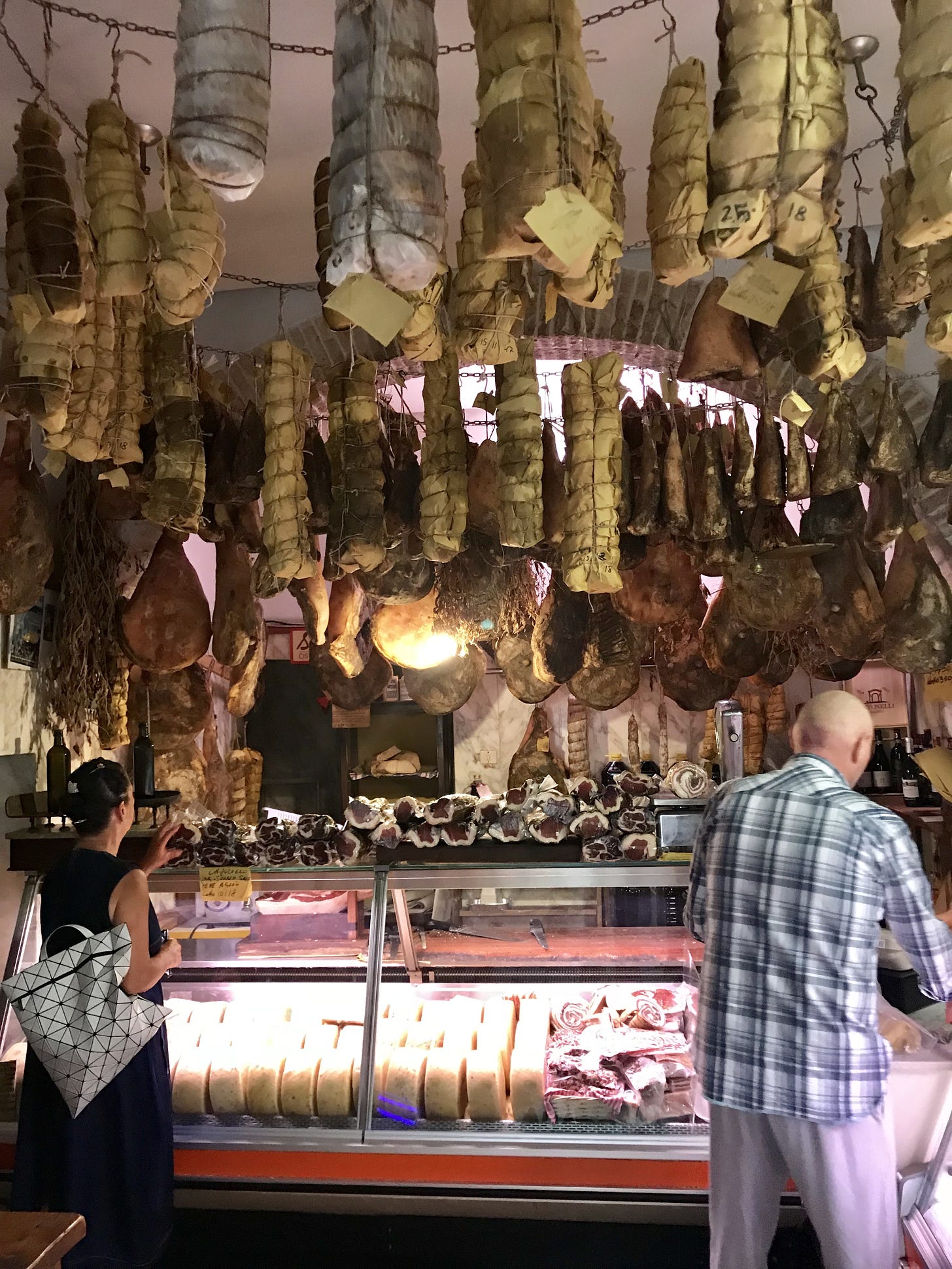
The next day we drove to the little walled town of Bevagna. First we found the most extraordinary fruit shop, the air filled with the fragrance of ripe peaches, apricots, strawberries. I kept adding more to my basket. Moving on we came to the Maccelleria Cariani; with its air redolent of hanging culatello, salamis and prosciutto it looked like something from the middle ages. Jonathan would have wanted everything; we bought too much.
The word was beginning to leak out that Jonathan was not just ill, but seriously so, and the gruesome business of obituaries began. Knowing that Nancy was a friend and that I'd worked with Jonathan on and off for more than thirty years we were both fielding phone calls from all over the world. I don't think I'll ever forget what it was like, walking through the faux-medieval market they were setting up in Bevagna's town square while answering questions about Jonathan. It consoled me that he would have appreciated the image. And when a man came over, to admonish me to stop leaning on a fake wood pillar, he would have laughed out loud.
We had dinner that night at Villa Roncalli in Foligno. "It's my favorite restaurant in Umbria," Nancy said, "but it's going to be the most leisurely meal you've ever had. There's only one woman in the kitchen, and she takes her time."
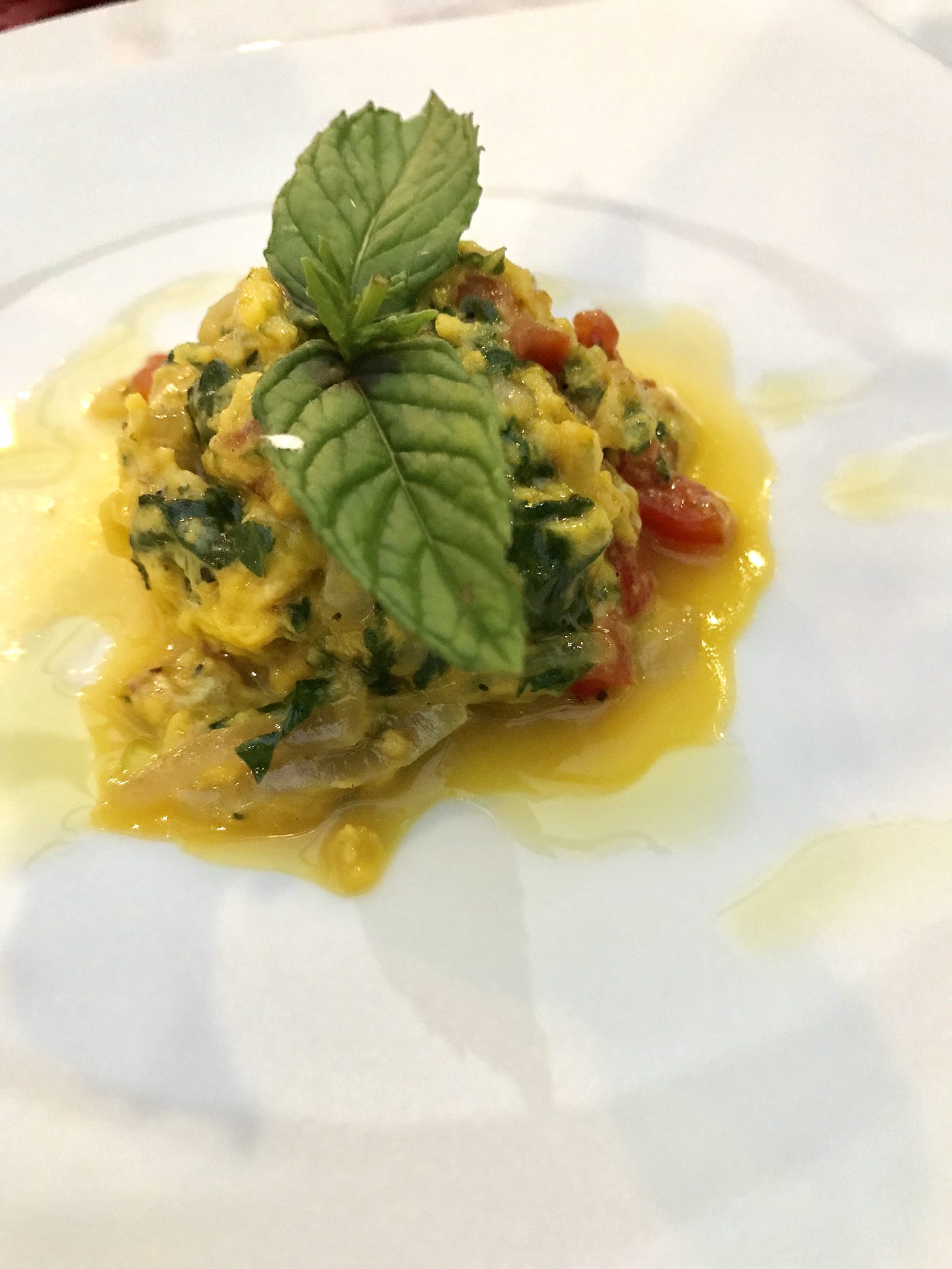
This was the most astonishing frittata I've ever encountered. So tender it trembled, the powerful herbal flavor a lovely contrast to the delicate texture. Jonathan, who hates eggs, would have shuddered.
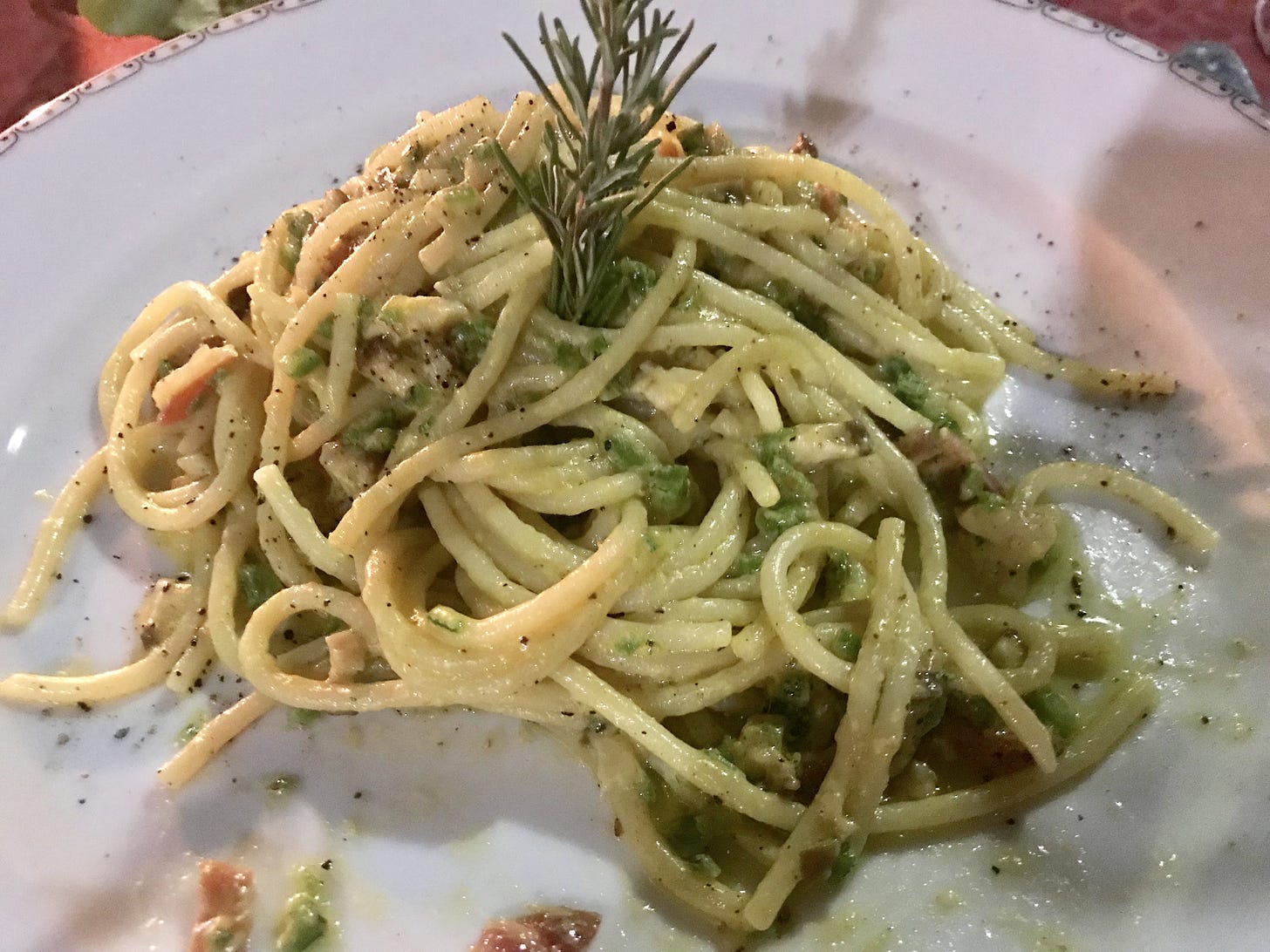
The chef, Maria Luisa Scolastra, grows her own vegetables, bakes her own bread, pasta and vinegar. This simple pasta with pesto shows you why her food is worth the wait: there's nothing to it. Just pasta, olive oil, herbs. And yet it makes you want to forget every other version of the dish you've ever tasted. It's a delicate dance of texture and flavor.
We'd been at the table three hours before the pasta showed up. And then, while we waited for grilled Chianina beef and pork we kept on drinking. We sat down to eat at 7:30, but it must have been 11 PM when Pete Wells called and the main course still had not shown up. Struggling to talk about Jonathan and how much he meant to me, I thought how he would have laughed to hear how deeply inarticulate I'd become.
We cooked the next day; Nancy had sold a home-cooked meal for charity. By then we knew that Jonathan had only hours to live, and while I helped Nancy make a dozen different vegetable dishes - grilled fennel, roasted eggplant, gorgeous white beans, roasted tomatoes, onions in balsamic vinegar, ricotta-stuffed squash blossoms, tiny potatoes - I constructed an apricot tart.
Once it went into the oven (the secret to all pies, I now believe, is to cook them more than you think you should), I went out to the garden and wrote about Jonathan. He would, I think, have liked the fact that I was cooking while I wrote. You can read it here.
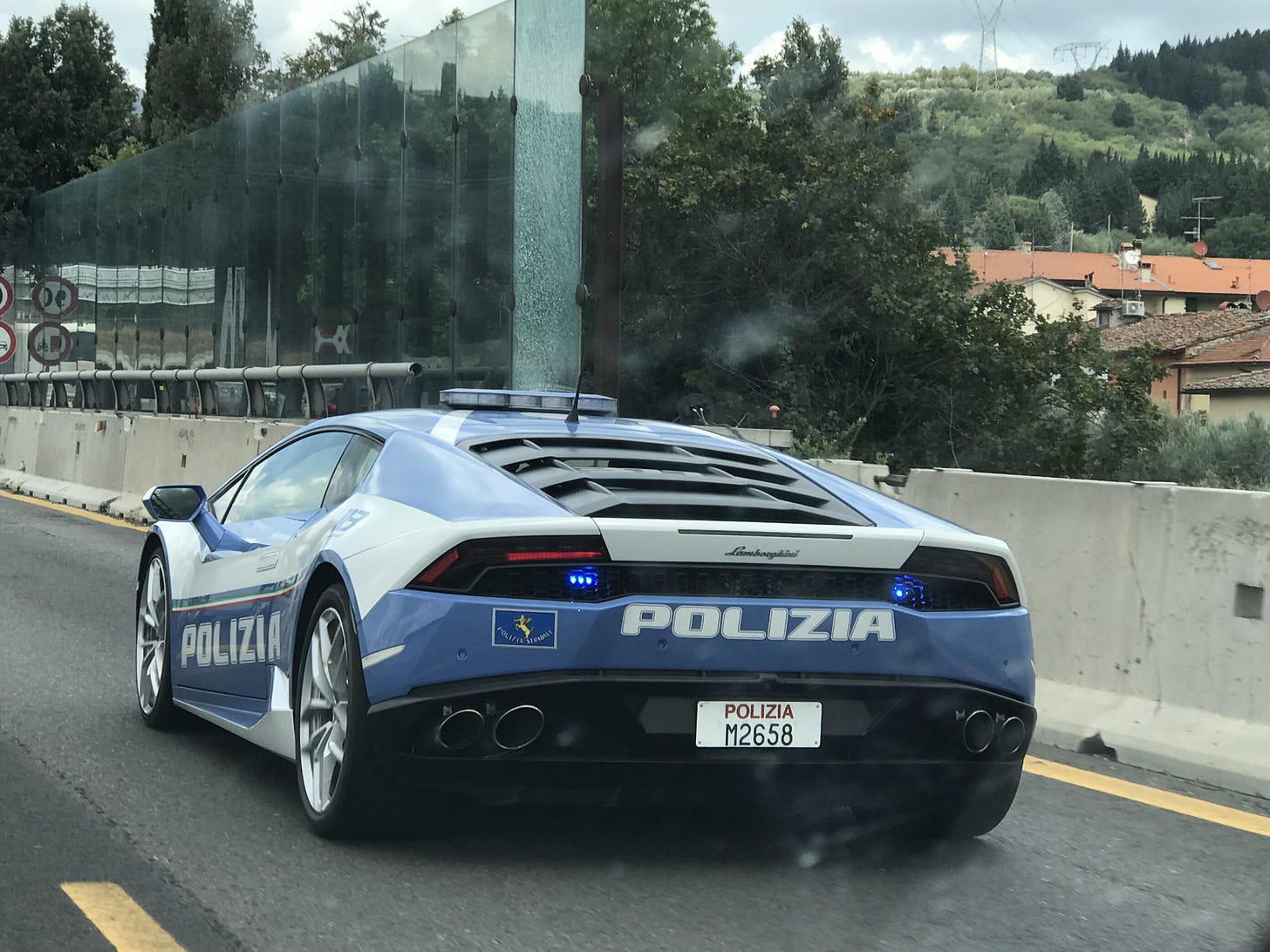
Tomorrow, all about Modena and the Basque Culinary World Prize. We passed this car along the way. Would any other country have Lamborghini cop cars?

